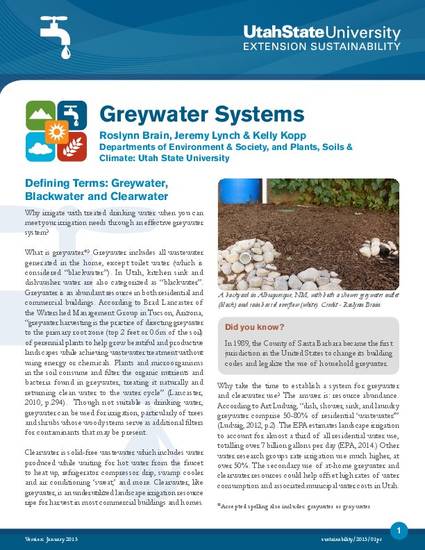
Why irrigate with treated drinking water when you can meet your irrigation needs through an effective greywater system?
What is greywater*? Greywater includes all wastewater generated in the home, except toilet water (which is considered “blackwater”). In Utah, kitchen sink and dishwasher water are also categorized as “blackwater”. Greywater is an abundant resource in both residential and commercial buildings. According to Brad Lancaster of the Watershed Management Group in Tucson, Arizona, “greywater harvesting is the practice of directing greywater to the primary root zone (top 2 feet or 0.6m of the soil) of perennial plants to help grow beautiful and productive landscapes while achieving wastewater treatment without using energy or chemicals. Plants and microorganisms in the soil consume and filter the organic nutrients and bacteria found in greywater, treating it naturally and returning clean water to the water cycle” (Lancaster, 2010, p.294). Though not suitable as drinking water, greywater can be used for irrigation, particularly of trees and shrubs whose woody stems serve as additional filters for contaminants that may be present.
